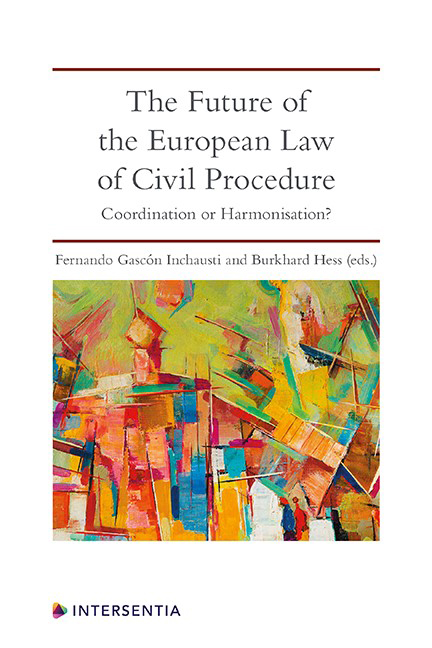Book contents
- Frontmatter
- Contents
- List of Cases
- List of Authors
- Introduction
- PART I METHODOLOGICAL APPROACHES
- PART II THE CURRENT SITUATION: VERTICAL AND HORIZONTAL HARMONISATION
- PART III CURRENT INITIATIVES FOR FURTHER HARMONISATION: The ELI/UNIDROIT Project
- The 2017 Directive Proposal on Common Minimum Standards of Civil Procedure
- Index
- ABOUT THE EDITORS
Procedural Harmonisation by the European Court of Justice: Procedural Autonomy and the Member States’ Perspective
Published online by Cambridge University Press: 23 July 2020
- Frontmatter
- Contents
- List of Cases
- List of Authors
- Introduction
- PART I METHODOLOGICAL APPROACHES
- PART II THE CURRENT SITUATION: VERTICAL AND HORIZONTAL HARMONISATION
- PART III CURRENT INITIATIVES FOR FURTHER HARMONISATION: The ELI/UNIDROIT Project
- The 2017 Directive Proposal on Common Minimum Standards of Civil Procedure
- Index
- ABOUT THE EDITORS
Summary
INTRODUCTION
The interrelation of national and European civil procedure can be examined from various perspectives. On the one hand, one might assess the emergence of a body of European civil procedural rules. The law of European civil procedure has recently celebrated its half century, 50 years having passed since the Brussels Convention of 1968 was signed. This field of law has been propelled forward with various legislative endeavours, supplemented by the case law of the European Court of Justice (ECJ), and perhaps most significantly, the entry into force of the Treaty of Amsterdam in 1999, which brought with it the aim of establishing an Area of Freedom, Security and Justice (AFSJ) encompassing a “genuine European area of justice“ through judicial cooperation in civil matters. On the other hand, one might instead examine the impact of European Union (EU) law on national civil procedure. The debate on the influence of substantive EU law on national civil procedure has emerged only more recently. Nevertheless, it has been at the forefront of political and academic debates in European civil procedure for at least 20 years.
This chapter focuses on the latter, namely on the influence of EU substantive law on national civil procedure. Other contributions to this edited collection focus on the role of the Union legislative institutions in this field as regards inter alia, the development of a framework of specific regulations providing for EU-wide procedures, for the core of cross-border civil procedure (that is, jurisdiction and applicable law, amongst other concerns) and the procedural rules applicable in sector-specific, vertical fields. This chapter does not examine those areas in which the EU has made either soft or hard law regarding national or European procedural rules. Rather, it analyses the grey areas in which the Member States remain competent to maintain and apply their own rules of national civil procedure but where this body of domestic law might be influenced by the application of rules found in EU substantive legislation. Various authors have indicated in this regard that the case law of the ECJ on national procedural law, in particular in the context of national procedural autonomy, may lead to the harmonisation of national procedural law.
- Type
- Chapter
- Information
- The Future of the European Law of Civil ProcedureCoordination or Harmonisation?, pp. 17 - 68Publisher: IntersentiaPrint publication year: 2020
- 1
- Cited by



